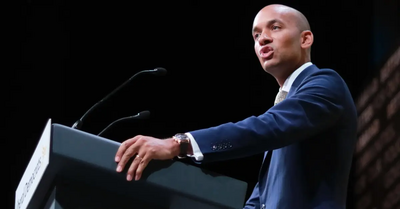Labour and the Tories need the two-party system to survive this election – here’s how you can change the rules

The polls say the Conservatives are on course to achieve a majority - but, with your help, the Liberal Democrats may well stop that from happening
This is the fourth general election I have been a part of, but it is by far the most surreal and unusual one I've seen, for many reasons. As we enter the final furlong of national campaigning, people's feelings - based on my own observations and feedback I've received from across the country - couldn't be clearer.
The discontent with the two main parties in UK politics - the Conservative and Labour parties - is palpable. There was general discontent with parliament in the wake of the 2009 expenses scandal at the time of the 2010 election (the first I stood in as a candidate). Take that level of discontent and multiply it tenfold and you still do not come close to how angry and dismayed people are. This is a feature of the majority of doorstep conversations our candidates have had all over the country. The Brexit chaos features as a reason, of course - but it is the general incompetence, ineptitude and a failure to do the basic constitutional duties of government and official opposition that people talk about.
Boris Johnson and Jeremy Corbyn have turbo-charged the disillusionment. The levels of vitriol directed at them is on another level. Cameron, Osborne, Miliband, Brown and Blair did not attract this amount of contempt. Johnson is seen as a narcissist, an inveterate liar focused on his own interests rather than the country's, particularly by the half that would rather stay in the EU than leave it. At door after door, long-standing Tory voters tell us they are voting Lib Dem for the first time at this election because they are sick of Johnson, can't bear watching the party they once voted for turn into the Brexit Party 2.0, and want a return to the centre-ground.
Corbyn is seen as extreme, weak and ineffectual - having failed to deal with racism in his party - and a threat to our national and economic security. That is a view held by a substantial number of longstanding Labour voters, never mind non-aligned ones. Candidates and activists from all parties have told me as much; I hear it a lot myself from voters.
In that context, it has been depressing and disappointing to witness candidates - who I knew as MPs in the last parliament, and who told me they would never sponsor either of the main party leaders to be prime minister - seeking to defend the indefensible.
Both carry a lot of baggage and have caused great offence to minority communities, but the concerns of those communities have been thrown under the bus and overridden by tribal party loyalty and the desire to continue as MPs. Part of the reason I left the Labour Party was because I did not feel it would be morally right to sponsor and facilitate a man whom I did not consider fit to lead our country. My feelings with regard to Johnson are much the same. So many Tory and Labour candidates know this to be true as well, but nevertheless have pressed on. It is very sad to see.

It has been a new experience standing for the Liberal Democrats and I have been proud to do so. You cannot underestimate just how difficult it is for the third party. Not only are there the formal constitutional impediments put in our way through the first-past-the-post voting system that works in favour of the two main parties, but there are the informal constitutional impediments too.
Most people form a view and get their news from broadcast outputs on elections. When broadcasters insist on presenting the race as a choice between the Tories and Labour - which they always do - other parties are, in effect, forced to run up a down escalator for the course of their campaign.
Ofcom obliges broadcasters to give other parties air time and coverage according to the last general election result, recent election results and polling. This is a chicken-and-egg situation, however, because broadcast coverage partially drives those election results and polling in the first place. In spite of this, we have managed to get some cut-through for our domestic agenda, but not as much as we would have wanted. At least our core message - of seeking to stop Brexit - has got the billing it deserves.
Finally, although it has been described as "the Brexit election", it feels like the pause button has been pressed on that issue throughout most of the campaign.
It will come quickly into view on Friday. The biggest development on Brexit during the campaign is the clear signal that the Tories will not only take us out of the EU at the end of next month if they get a majority, but we will be trading with the EU on "no deal" terms because it is impossible to finalise a trade deal (which took Canada almost 10 years to negotiate) in 10 months and Johnson has pledged not to extend the transition period.
Whatever happens, my prediction is that the economy will become the main issue, once again, over the next year. This underlines why it is so important that we deprive Johnson of the majority the polls indicate he is on course to achieve. The Liberal Democrats are in a prime position to take seats from the Tories to stop this happening. This will require voters overriding the outdated system and tactically voting to safeguard the futures of the next generation.
Chuka Umunna is the Liberal Democrat parliamentary candidate for the Cities of London and Westminster
